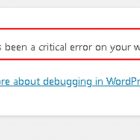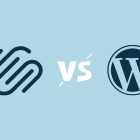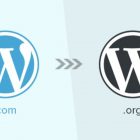Does CMS matter for SEO?

Does CMS matter for SEO – When it comes to search engine optimization (SEO), there are many factors that can impact the ranking of a website. One of those factors is the content management system (CMS) used to create and manage the site. In this article, we will explore the impact of CMS on SEO and discuss best practices for choosing and optimizing a CMS for SEO.
Understanding CMS
A CMS is a software application that allows users to create, manage, and publish digital content, usually through a web-based interface. There are many types of CMS, including open-source systems like WordPress, Joomla, and Drupal, as well as proprietary systems like Adobe Experience Manager and Sitecore.
Using a CMS offers several benefits, including the ability to easily create and update content, manage site navigation, and maintain a consistent look and feel across the site.
Impact of CMS on SEO
The CMS used to create and manage a website can have a significant impact on its search engine ranking. Here are some of the ways that CMS can affect SEO:
Page loading speed
The speed at which a web page loads is an important factor in search engine ranking. CMS that are bloated with unnecessary features can slow down page loading speed, which can negatively impact SEO.
Site architecture
The site architecture, or how the site is organized and structured, can impact SEO. A CMS that allows for easy site navigation and organization can improve user experience and help search engines crawl and index the site more efficiently.
URL structure
The structure of URLs on a website can also impact SEO. A CMS that allows for easy customization of URL structure, including the use of keywords, can help improve search engine ranking.
Mobile responsiveness
With the rise of mobile devices, having a mobile-responsive website is critical for SEO. A CMS that offers responsive design capabilities can ensure that the site is optimized for mobile devices and improve search engine ranking.
Content management
The ability to easily create and manage high-quality content is key to SEO success. A CMS that offers features like content scheduling, content optimization, and content personalization can help improve search engine ranking.
Choosing the Right CMS for SEO
When choosing a CMS for SEO, there are several factors to consider, including:
- Ease of use
- Customization options
- Support for SEO plugins and add-ons
- Integration with other tools and platforms
- Mobile responsiveness
- Security features
Some of the most popular CMS for SEO include WordPress, Drupal, Joomla, and Magento. Each CMS has its own pros and cons, so it’s important to carefully evaluate each option based on your specific needs and goals.
Best Practices for CMS-based SEO
Once you have chosen a CMS for your website, it’s important to optimize it for SEO. Here are some best practices to follow:
Keyword research
Performing keyword research is essential to identifying the keywords and phrases that your target audience is using to find your website. Use tools like Google Keyword Planner or SEMrush to identify relevant keywords to include in your content.
Content optimization
Optimizing your content for SEO involves using keywords and phrases strategically throughout your content. Be sure to include keywords in your headlines, subheadings, and body copy, but don’t overuse them. Remember to write for your audience, not just search engines.
Meta tags and descriptions
Meta tags and descriptions are snippets of code that provide search engines with information about your site. They appear in search engine results and can influence click-through rates. Be sure to include relevant keywords in your meta tags and descriptions, but keep them concise and compelling.
Image optimization
Images can help make your content more engaging, but they can also slow down page loading speed. Optimize your images by compressing them and using descriptive file names and alt tags.
Internal linking
Internal linking helps search engines understand the structure of your website and can improve user experience. Be sure to link to relevant content within your site, using descriptive anchor text.
Sitemap submission
Submitting a sitemap to search engines helps them crawl and index your site more efficiently. Most CMS have built-in sitemap generators that can be easily submitted to search engines.
Common CMS-related SEO Mistakes
While a CMS can be a powerful tool for SEO, there are also some common mistakes to avoid:
Duplicate content
Creating duplicate content can confuse search engines and negatively impact your ranking. Be sure to avoid duplicate content by using canonical tags or redirecting duplicate URLs to the original page.
Broken links
Broken links can negatively impact user experience and SEO. Use tools like Google Search Console to identify and fix broken links on your site.
Poor URL structure
A poorly structured URL can make it difficult for search engines to crawl and index your site. Be sure to use descriptive and keyword-rich URLs that accurately reflect the content on your page.
Slow loading speed
As mentioned earlier, slow loading speed can negatively impact SEO. Use tools like Google PageSpeed Insights to identify and fix issues that are slowing down your site.
Missing meta tags and descriptions
Not including meta tags and descriptions can make it difficult for search engines to understand the content on your site. Be sure to include relevant meta tags and descriptions on all pages of your site.
Conclusion
In conclusion, choosing the right CMS and optimizing it for SEO can have a significant impact on your search engine ranking. By following best practices and avoiding common mistakes, you can ensure that your website is optimized for success.
FAQs
What is CMS?
A CMS, or content management system, is a software application that allows users to create, manage, and publish digital content.
Why is CMS important for SEO?
The CMS used to create and manage a website can impact its search engine ranking by affecting factors like page loading speed, site architecture, URL structure, mobile responsiveness, and content management.
What are the best CMS options for SEO?
Some of the most popular CMS for SEO include WordPress, Drupal, Joomla, and Magento. Each CMS has its own pros and cons, so it’s important to evaluate each option based on your specific needs and goals.
How can I optimize my CMS for SEO?
Optimizing your CMS for SEO involves performing keyword research, optimizing your content, including meta tags and descriptions, optimizing images, internal linking, and submitting a sitemap.
What are some common CMS-related SEO mistakes to avoid?
Some common CMS-related SEO mistakes to avoid include creating duplicate content, having a poor URL structure, having a slow loading speed, missing meta tags and descriptions, and having broken links. By avoiding these mistakes and following best practices, you can ensure that your website is optimized for success.
Can I switch CMS without negatively impacting SEO?
Switching CMS can be a daunting task, but it is possible to do it without negatively impacting your SEO. Before making the switch, be sure to create a comprehensive plan that includes a content audit, URL mapping, and 301 redirects. Additionally, make sure to monitor your site closely after the switch to ensure that everything is working properly.
How do I choose the right CMS for my website?
Choosing the right CMS for your website depends on a variety of factors, including your technical skills, budget, and specific needs. Some of the most popular options for SEO include WordPress, Drupal, Joomla, and Magento. It’s important to evaluate each option carefully and choose the one that best meets your needs and goals.
How often should I update my CMS for SEO?
Keeping your CMS up to date is essential for ensuring optimal performance and SEO. Most CMS providers release updates on a regular basis, so be sure to stay informed and update your CMS as needed. Additionally, regularly monitoring and optimizing your content for SEO can help improve your search engine ranking over time.
What other factors besides CMS impact SEO?
While the CMS you use can impact your search engine ranking, there are many other factors to consider, including the quality and relevance of your content, backlinks from other sites, mobile responsiveness, site architecture, and user experience. By focusing on these factors in addition to optimizing your CMS, you can improve your SEO and drive more traffic to your site.
















































